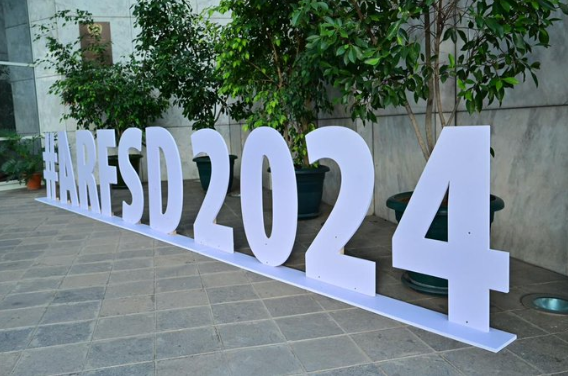
Advancing Climate Justice: Insights from the 5th Africa Climate Talks and the 10th Session of the Africa Regional Forum on Sustainable Development
As the global community grapples with the urgent need to address climate change, Africa stands at the forefront of both the challenges and the opportunities for sustainable development. The recent convergence of the 5th Africa Climate Talks and the 10th Session of the Africa Regional Forum on Sustainable Development in Addis Ababa, provided a pivotal platform to address critical issues such as climate finance, gender-inclusive budgeting, and the active involvement of women in policy processes. From a feminist perspective, this article explores the significance of these discussions in advancing the Sustainable Development Goals (SDGs) and Agenda 2063, with a particular focus on goals 1, 2, 13, 16, and 17.
Climate Finance and Gender-Inclusive Budgeting
One of the central themes of the discussions revolved around the importance of climate finance in facilitating adaptation and mitigation efforts across the continent. However, a feminist lens emphasizes the need for gender-responsive budgeting within these financial mechanisms. Women and girls, who are disproportionately affected by climate change, must have equitable access to resources and decision-making processes. Gender-inclusive budgeting ensures that funding allocations address the specific needs and priorities of women, ultimately enhancing the effectiveness and sustainability of climate initiatives.
Inclusion of Women in Policy Processes
Another key aspect highlighted during the talks was the crucial role of women in shaping climate policies and strategies. Despite being disproportionately impacted by climate change; women and girls are often marginalized in decision-making processes. A feminist perspective underscores the importance of inclusive governance structures that actively involve women in all stages of policy formulation, implementation, and evaluation. By amplifying the voices of women, policies become more contextually relevant, responsive, and effective in addressing the complex challenges of climate change.
Role of Civil Society, Government, MDBs, and Private Sector
The discussions underscored the importance of multi-stakeholder collaboration in driving climate action. Civil society organizations play a vital role in advocating for gender-responsive policies and holding governments and other stakeholders accountable. Governments, on the other hand, have a responsibility to create enabling environments that support gender equality and women’s empowerment in climate initiatives. Multilateral Development Banks (MDBs) and the private sector are also instrumental in mobilizing resources and expertise for sustainable development projects. However, it is imperative that these entities integrate feminist principles into their operations, ensuring that investments and interventions prioritize gender equality and women’s rights.
Advancing SDGs and Agenda 2063
At the heart of the discussions was the shared commitment to achieving the SDGs and Agenda 2063, both of which emphasize the importance of gender equality and climate action. Goal 1 (No Poverty) and Goal 2 (Zero Hunger) are intrinsically linked to climate resilience and sustainable agricultural practices, with women playing a central role as custodians of food security in many African communities. Goal 13 (Climate Action) underscores the urgency of mitigating greenhouse gas emissions and building climate-resilient societies, while Goal 16 (Peace, Justice, and Strong Institutions) highlights the importance of inclusive governance and
access to justice, particularly for marginalized groups. Finally, Goal 17 (Partnerships for the Goals) emphasizes the need for collaborative efforts involving governments, civil society, multinational development bank (MDBs), and the private sector to achieve sustainable development objectives.
Conclusion
The 5th Africa Climate Talks and the 10th Session of the Africa Regional Forum on Sustainable Development provided a critical platform for advancing climate justice and gender equality in Africa. Through a feminist lens, discussions centered on the importance of climate finance, gender-inclusive budgeting, and the active participation of women in policy processes. By integrating feminist principles into climate initiatives, African countries can accelerate progress towards the SDGs and Agenda 2063, ensuring a more equitable and sustainable future for all.






